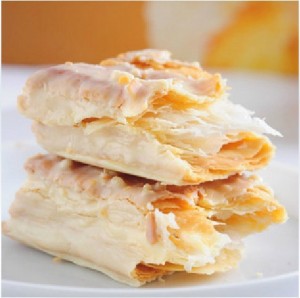Ready-to-eat foods are a convenient choice for people, but four out of 100 products were found to contain excessive levels of Escherichia coli bacteria, even after a retest, the Taipei City Government’s Department of Health said yesterday.
 Initial testing results showed that of the 100 ready-to-eat food products, ranging from pot-stewed snacks, cold sesame noodles and sandwiches to lunchboxes, hamburgers and rice rolls that the department purchased from convenience stores, street food stalls, hypermarkets and coffee shops in the city in May and June, 24 contained E. coli at levels exceeding the maximum permissible limit.
Initial testing results showed that of the 100 ready-to-eat food products, ranging from pot-stewed snacks, cold sesame noodles and sandwiches to lunchboxes, hamburgers and rice rolls that the department purchased from convenience stores, street food stalls, hypermarkets and coffee shops in the city in May and June, 24 contained E. coli at levels exceeding the maximum permissible limit.

 The Welsh Assembly Government issued a ban on the sale of home-made products in schools in areas affected during the E. coli outbreak, but this guideline was withdrawn when the outbreak was over.
The Welsh Assembly Government issued a ban on the sale of home-made products in schools in areas affected during the E. coli outbreak, but this guideline was withdrawn when the outbreak was over.